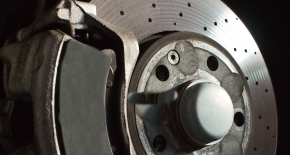Major Applications of Epoxy Resins
We introduce epoxy resins suitable for various applications such as FRP molding, floor coating, adhesives, coatings and encapsulants.
Floor Coating Materials/ Linings/ Civil Engineering Repair Materials |
|||||
|---|---|---|---|---|---|
| Bisphenol A Liquid | 〇 | 〇 | 〇 | 〇 | 〇 |
| Bisphenol A Solid | 〇 | 〇 | 〇 | 〇 | 〇 |
| Bisphenol F | 〇 | 〇 | 〇 | 〇 | 〇 |
| Diluted Types | 〇 | 〇 | 〇 | 〇 | |
| Bisphenol A Solvent-cut Products | 〇 | 〇 | 〇 | ||
| Flame Retardant Types | 〇 | 〇 | 〇 | ||
| Cresol Novolac | 〇 | 〇 | 〇 | ||
| Phenol/Modified Novolac | 〇 | 〇 | 〇 | 〇 | |
| Flexible Types | 〇 | 〇 | 〇 | 〇 | |
| Fast Curing Types | 〇 | 〇 | 〇 | ||
| High Molecular Weight Types | 〇 | 〇 | |||
| High Performance Types | 〇 | 〇 | 〇 | 〇 | 〇 |
When using epoxy resins for impregnation and lamination, heat resistance, mechanical strength, modulus and flame retardancy are primarily demanded. When using them for FRP molding, fast curability is demanded. So that we can respond to our customer's varied applications and demanded characteristics, DIC stocks many types of epoxy resin from solids to liquids.
Heat Resistance
DIC recommends multifunctional epoxy resin products such as cresol novolac epoxy resins that possess a molecular structure that excels in heat resistance.
We also have unique chemical structure resins like naphthalene type epoxy that poses ultra high heat resistance, high modulus...etc.
Flame Resistance
In addition to brominated flame retardant types that possess remarkable flame resistance performance, DIC recommends multifunctional epoxy resin products with high cross-linking densities such as phenolic novolac for halogen-free applications.
Curability
DIC recommends liquid bisphenol A, bisphenol F, and phenolic novolac epoxy resin products with excellent curability.
Liquid, low viscosity resins are required when using epoxy resins as floor coating materials, linings, and civil engineering repair materials. DIC's bisphenol F epoxy resins have low viscosity and have excellent workability in particular. Superior characteristics can also be added to epoxy resins by combining diluted types and fast curing types or by using polyamine or polyamide as a curing agent.
Bonding Properties
Epoxy resins have excellent bonding properties and are suitable for use in coated flooring, lining, and civil engineering repair applications. In particular, epoxy resins that have a bisphenol backbone add superb characteristics from general purposes to special purposes.
Low-temperature Curing
Curability under extreme environmental conditions is demanded in applications where epoxy resins are used outdoors. Work can be done without problems even in low temperature conditions by using fast curing types or polyamine/polyamide products.
Viscosity & Strength Characteristics
When epoxy resins are used as coated floors and civil engineering repair materials, solventless types with low viscosity and mechanical strength are required. Excellent characteristics are demonstrated by using bisphenol F epoxy resins or polyamine/polyamide products.
From general adhesives to structural adhesives, epoxy resins can obtain excellent bonding properties against many kinds of materials. Characteristics as an adhesive can be further improved by the combined use of flexible epoxy resins and highly functional epoxy resins.
Bonding Properties
Bisphenol epoxy resins have excellent bonding properties and are well suited as adhesive ingredients. Bonding properties can be further increased and strong bonding performance can be added by the combined use of flexible epoxy resins.
Curability
Epoxy resins can be cured at low temperatures by using fast curing type epoxy resins. Room temperature curable adhesives can be designed by using polyamine or polyamide curing agents.
Workability
As adhesives, viscosity characteristics are important. Epoxy resins matched to adhesive characteristics are stocked in a broad range from solventless types to solvent types.
Since epoxy resins and amine curing agents excel in bonding properties with metals, they demonstrate excellent anticorrosion properties when used as coating ingredients. When high molecular weight types are used, coatings have excellent secondary workability, which makes them optimal as PCM primers.
Epoxy resins also have a wide range of viscosities, from solventless types to solvent solution types, which makes them optimal as ink ingredients where viscosity characteristics are important.
Bonding Properties
Epoxy resins feature superb metallic bonding properties, so they are optimal as coating ingredients. In particular, cured coatings with bisphenol epoxy resins and amine curing agents demonstrate high anticorrosion properties by high bonding properties.
Workability
Coating base material conformability is required in PCM where materials undergo secondary processing after coating. By using high molecular weight types, both excellent anticorrosion properties under the thin film and workability can be achieved.
Workability
Epoxy resins matched to the viscosity characteristics of inks are stocked in a broad range from solventless types to solvent solution types.
When using epoxy resins as semiconductor encapsulants, high purity, low moisture absorption, superb curability, high heat resistance, and environmental friendliness (lead-free solder support, non-halogen flame resistance) are primarily required as the desired performance. DIC's epoxy resins feature a lineup of products with characteristics that can meet these requirements.
Lead-free Solder Support
To achieve this ability, low viscosity, a low moisture absorption rate, low elastic modulus when heated, and high bonding properties are effective. DIC recommends products that combine these abilities at a high level.
Non-halogen Flame Resistance
Advanced functions such as flame resistance, heat resistance, moisture resistance, and dielectric characteristics must be combined in cutting-edge electronics fields. DIC recommends products that have combined these characteristics at a high level.
High Heat Resistance
High heat resistance is required in BGA and automotive applications. DIC recommends products with low melt viscosity and excellent curability.
Inquiry About This Product
-
Inquiry on website
-







